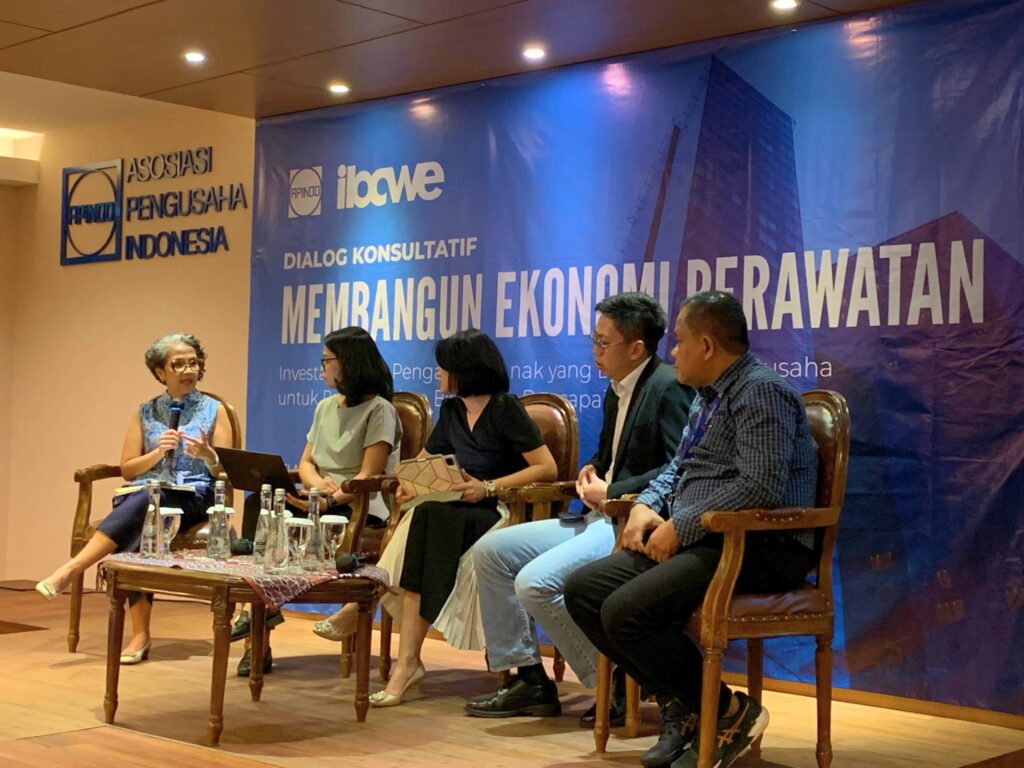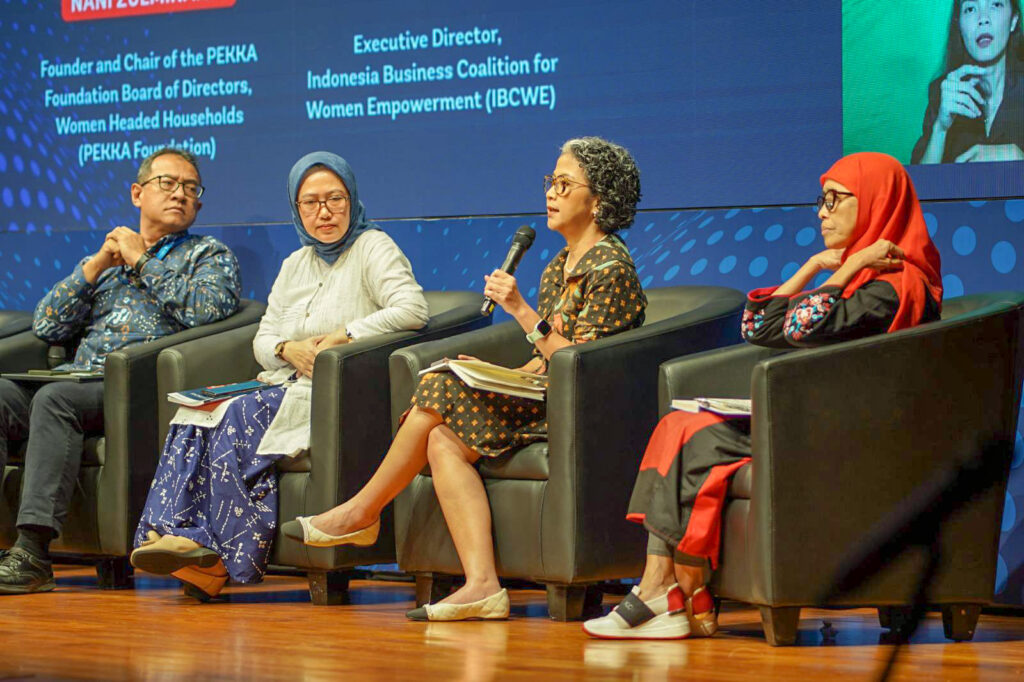In Indonesia, discussions around the care economy are gaining traction, strongly motivated by the potential to boost female labour force participation, which has remained stagnant over the past two decades at around 54 percent. A 2024 World Bank report highlights a pressing issue: approximately 40% of women in Indonesia have left the workforce after marriage and childbirth, with nearly half citing family-related reasons.
This International Day of Care and Support, on 29 October 2024, the Indonesia Business Coalition for Women Empowerment (IBCWE) will add to this momentum by engaging with members of APINDO (Indonesian Employers Association) on the opportunities and barriers to employer-supported childcare. The event featured a panel discussion with Prospera, representatives from Telkom Indonesia and Unilever Indonesia as IBCWE’s members that already offered employee childcare service and facility, and KinderCastle, a childcare service provider, to inspire and share their learnings with other participant companies. As the moderator, IBCWE’s Executive Director, Wita Krisanti, highlighted that “investing in employer-supported childcare not only boosts employee engagement and productivity but also contributes to the long-term sustainability of businesses.”

Wita Krisanti, Executive Director of IBCWE, moderated the panel discussion at the International Day of Care and Support event in partnership with APINDO. From left to right: Wita Krisanti, Usha Adelina Riyanto, Economist of Prospera, Kristy Nelwan, Head of Communication and Chair of ED&I Board Unilever Indonesia, Antoni Lewa, CEO Kindercastle, Sri Saptadi, Senior Manager Employee Wellbeing, PT Telkom Indonesia (Photo credit: IBCWE, 2024).
By investing in childcare programs for employees, businesses can create a supportive environment that enhances retention and boosts productivity. IBCWE stated that for employers, the availability of quality childcare impacts both employees and the overall performance of companies.
The discussion will build on IBCWE’s publication, in March 2024, of Indonesia’s first guideline for employer-supported childcare, in collaboration with Prospera and Investing in Women. Moving forward, Investing in Women will support IBCWE to work with its members to trial different models of employer-supported childcare and share insights on regulatory enablers and barriers with a broader range of stakeholders over the next three years.
At the launch of the World Bank’s report on The Care Economy in Indonesia on 3 September 2024, Wita Krisanti also emphasised that employers have a role in supporting their employees’ childcare responsibilities but that solutions cannot be one-size-fits all.
“The challenges that companies face in providing childcare support vary significantly. For instance, financial institutions or offices in central business districts face different issues compared to more remote sectors like mining, manufacturing, or plantations. This is why IBCWE works with different companies to conduct needs assessments so they can tailor their support accordingly,” said Wita.

Wita Krisanti, Executive Director of IBCWE, participated in the launch of the World Bank’s report on The State of the Care Economy in Indonesia. From left to right: Dr. Elan Satriawan, Head of Policy Working Group of the National Team for Accelerating Poverty Reduction (TNP2K); Professor Vina Adriany Ph.D., Director SEAMEO CECCEP, Indonesia; Krisanti; and Nani Zulminarni, Founder and Chair of the PEKKA Foundation Board of Directors, (Photo credit: The World Bank, 2024).
As IBCWE continues its efforts, it will focus on gathering insights and evidence from employer experiences in trialling childcare support and engaging in policy discussions, aiming to facilitate broader adoption of employer-supported childcare across the private sector. Through these initiatives, IBCWE seeks to contribute to a more inclusive care economy and women’s economic empowerment in Indonesia.
Framing these private sector-led efforts, the Indonesian government has laid out its own plans for action, including the National Roadmap for the Care Economy, launched in March 2024, and care-focused initiatives forthcoming in the National Mid-Term Plan 2025-2029 (RPJMN) and National Long-Term Plan 2025-2045 (RPJPN).

